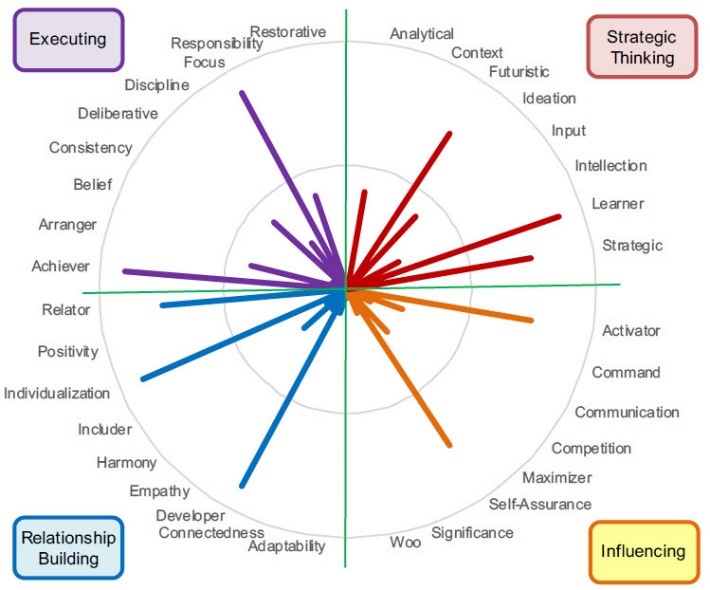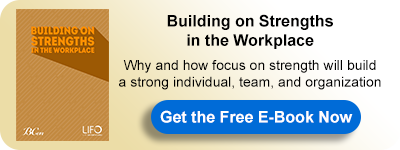New Tools for Developing Employee Strengths
Many of us have taken or heard about different personality assessments which help us gain insights into who we are, but the amounts of assessments and their insights are hilarious. This may be useful as it helps in exploring different scopes of the personality and their impact on our life and work, but it also can be distracting if you couldn’t manage how to put these insights into action and make well use of them for your own interest. On the business level, businesses around the world are evolving to figure out the best way of leading and managing the human capital available to them to make better use of it and maximize its benefit by the help of the positive psychology.
Positive Psychology is defined as the study of the “good life”, or the positive aspects of the human experience that make life worth living. It focuses on happiness, strength, personal potential and greatest satisfaction. Many assessment tools focus on fixing something that is wrong, while the strength based approach and its modern tools and assessments focus on helping one realizing his/her true self and building on their behavior style.
There are mainly two tools that are based on this approach, and help the employees realize their nature and strengths to build their development based on these natural talents and skills. One of them is LIFO (Life Orientations) assessment and program, the other is Clifton Strengths assessment followed by an individual and/or group coaching session/s.
1. Life Orientations (LIFO)
Since the LIFO® Survey originated as a positive and structured tool to supplement organizational development efforts and group dynamics training in 1967, over nine million people in 20,000 organizations have used the LIFO® Method and LIFO® Training worldwide.
Each of us has preferences for how we want to think and get things done as well as how we would like to receive or deliver information. The LIFO Method helps people identify their strengths and behavioral styles, how to best manage and make most out of these strengths. There are four styles based on the four basic ways human interact; Giving, Taking, Holding and Dealing.

Being aware of one’s strengths and behavioral preference and those of others helps individuals, team and organization be more efficient and effective. By having this knowledge, a clearer and more objective window into others’ communication and differing personal dynamics is available, providing greater understanding and opportunities to develop better strategies and achieving the best outcomes.
How LIFO is different from others?
The obvious difference between LIFO and strength-based tools is that you can see behavior styles both in “favorable conditions” and “unfavorable conditions.” This will lead you ways to find the destination where no other companies can guide. Here is why:

In particular, a leader absolutely needs the skills to build consensus in teams under “unfavorable conditions” within very limited time. This supports team members to pull together for urgent problem solving as a team.
For example, with time of emergency; like the explosive expansion of patients with new corona pneumonia, it is necessary to be able to quickly make rational decisions as a leader and convince the stakeholders around you of your decisions. In this emergency, the behavior styles are completely different from the ones in normal times. No matter how good leaders are in normal times, it does not always mean that they can exert their leadership in an emergency as well.
The LIFO Method does not assume that people behave the same when in favorable and unfavorable conditions. In fact, half or more of those who complete the LIFO Survey have very a different mix of preferred behavioral styles when seen through the lenses of favorable and unfavorable conditions. The LIFO method identifies behavioral style in both favorable and unfavorable conditions, giving insight and awareness to assist in managing strengths in different situations.
2. Clifton Strengths-Finder
The Clifton Strengths-Finder assessment was created under the leadership of educational psychologist Donald Clifton. He wanted to identify the skills of the best of the best of the best, and to capitalize on them.
The Gallup Organization developed numerous semi-structured interviews to identify talent that could be enhanced and used to pursue positive outcomes in work and school. In the 1990s, Clifton developed the CSF as an objective measure of personal talent. The Clifton StrengthsFinder assessment helps identify the areas where you (or team if being used in that context) have the greatest potential for building strength. It measures recurring patterns of thought, feeling, and behavior. Once you’ve completed the Clifton StrengthsFinder, you’ll immediately receive the results – your top 5 signature themes in ranked order. Your individual results will also include a packet of information specifically geared to your unique Theme Print.

CliftonStrengths, as newly branded, was completed by +20 million person as per Gallup.
Finally, developing your team’s competencies has great benefits for the organization, but helping your team members grow into their roles and develop their skills can be one of the most rewarding experiences for a leader and enables employees achieve their well-being.
1https://en.wikipedia.org/wiki/Positive_psychology
2https://lifo.co/introduction-lifo/lifo-method-history/
3https://lifo.bconglobal.com/
4https://www.leadershipvisionconsulting.com/what-is-the-clifton-strengthsfinder/
For more about this topic, download our latest book “Building on Strengths in the Workplace“ for FREE:

